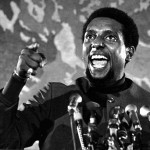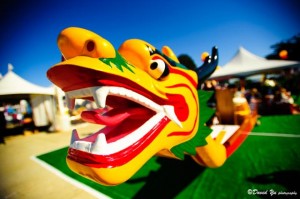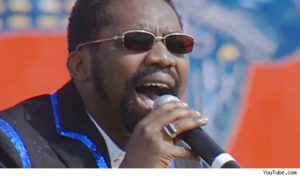The Birth of Black Power
Kw ame Ture was born on June 29, 1941 (a.k.a Stokely Carmichael). He was a Trinidadian-American Black activist who rose to prominence as a leader of the Student Nonviolent Coordinating Committee (SNCC) and later as a leader in the Black Panther Party. Carmichael popularized the term “Black Power”.
ame Ture was born on June 29, 1941 (a.k.a Stokely Carmichael). He was a Trinidadian-American Black activist who rose to prominence as a leader of the Student Nonviolent Coordinating Committee (SNCC) and later as a leader in the Black Panther Party. Carmichael popularized the term “Black Power”.
He attended Howard University in 1960 and at 19 years of age he participated in the Freedom Rides of the Congress of Racial Equality (CORE). After entering a “white” cafeteria in Jackson he and members of his group were convicted of disturbing the peace and were sent to jail and eventually transferred to Parchman State Prison Farm where Carmichael gained notoriety for being a witty and hard nosed leader among the prisoners. At 19 years old he became the youngest detainee in the summer of 1961.
He worked as a SNCC activist in Alabama and helped to increase the number of registered voters from 70 – 2600 (300 more than the number of white registered voters).
Following the shooting of James Meredith during his solitary March Against Fear, Carmichael joined Dr. Martin Luther King and others to continue Meredith’s march. He was arrested once again during the march and, upon his release, he gave his first “Black Power” speech urging those in attendance to embrace Black pride and socio-economic independence:
It is a call for Black people in this country to unite, to recognize their heritage, to build a sense of community. It is a call for Black people to define their own goals, to lead their own organizations.
While the concept of Black Power was not new, this became a rallying cry for young Blacks across the country. Everywhere that Black Power spread, credit was given to Carmichael.
Carmichael stepped down from SNCC in 1967, the same year he published his book, “Black Power” and became more focused on what he perceived to be the helplessness of Blacks participating in the non-violent movement as he witnessed Black demonstrators being beaten and shocked with cattle prods by the police. In response to this Carmichael became the “Honorary Prime Minister” of the Black Panther Party.
Carmichael later moved to Guinea. It was during his time in Guinea that he renamed himself Kwame Toure.
On November 15, 1998, at the age of 57, Stokely Carmichael died of prostate cancer.
His life and legacy will always be remembered.
Click here fore more information on Stokely Carmichael.




